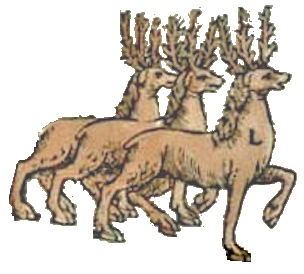You Can't Overuse the Word ‘Friend’
The case for being generous when giving out friendship status 🧡
Ever since Facebook came up with the concept of a social media ‘friend’ in the 2000s, and to be fair probably for far longer, though I wasn’t old enough to observe it then, people have been expressing an opinion that goes roughly like this:
Most people have very few true friends. When we call everyone we know ‘friends,’ we devalue the meaning of the word. We should use the word only for people who meet some threshold of true friendship.
…where the threshold might be something like “willing to help you in time of need” or “good, and alike in virtue; for these wish well alike to each other qua good, and they are good themselves.”1
The first two parts of that imaginary opinion2 are statements of fact, and I mostly agree with them. It’s correct that most people don’t have many ‘true’ friends, assuming a meaningful definition of ‘true.’ It’s correct that calling everyone a friend eventually drains the word of its strength. What I disagree with is the third part: that we should stop using the word liberally, in order to somehow stop the devaluing.
Put differently, don’t be afraid of calling people that you like ‘friends.’ There is no risk of overusing the word. But conversely, there is a risk of not using it enough.
I can see a few reasons why there is no risk of overuse. First, no one is ever insulted to be called a friend. At most it might cause a bit of awkwardness if they don’t see you as a friend, but that’s rare, and in most cases people will be happy to hear that you consider them a friend. The word carries a highly positive charge.
Second, it doesn’t really matter if the word loses its meaning over time. Even if it became known that being my friend wasn’t as high status as being friends with someone who carefully reserves the word to only a select few — well, you’d still be my friend! It seems highly unlikely that the word could be depleted of its meaning to the extent that its positive charge has fully dissipated. Its emotional valence will never be on par with “stranger” or “acquaintance.”
And even if it were, who cares? Words are cheap. The concept currently referred to as ‘friendship’ would still exist, so English speakers would just come up with some other word to refer to it. Language always adapts. It’s slightly annoying to the logical minded that ‘awesome’ doesn’t mean ‘awe-inspiring’ anymore, but that obviously doesn’t mean English speakers have lost the ability to feel awe.
This is already what we naturally do when using phrases like ‘true friend’ or ‘close friend.’ If it’s important to communicate that someone is a special kind of friend, you can do so with a monosyllabic word, which is far easier than restricting your usage of the word ‘friend’ as a lifelong project.
Words are cheap, but they’re not weak. The positive charge of ‘friend’ is powerful; it’s almost like a kind of magic. When you call someone a friend, you’re making them your friend, by a small but nonzero amount. You’re setting an intention, and that intention can move mountains.
Imagine a person whom you know a little, and appreciate, but aren’t in any way close to. Let’s call them Eustache. Someone else asks you, in Eustache’s presence, what is the relationship between you both. You have two choices: you could say that Eustache is “an acquaintance,” or you could say they’re “a friend.” Let’s say you speak first, so you don’t exactly know what Eustache would answer.
If you say “friend,” then you’ve displayed warmth towards Eustache. Maybe they didn’t consider you a friend, but now, upon hearing you, they might realize that you can be their friend, too. Maybe that doesn’t ever lead anywhere. But maybe it does, and you actually develop a true friendship over time.
If you say “acquaintance,” then you’re deliberately giving Eustache a lower status. They’ll probably also think of you as a mere acquaintance, too. That’s fine if you don’t actually like Eustache, and prefer them not to see you as a friend. But if it’s someone you have broadly positive feeling towards, then keeping them out of your exclusive circle of friends isn’t going to help you in any way.
It’s no coincidence that ‘acquaintance’ is an awkward, almost clinical, three-syllable word. It’s not really meant to come up during normal rapport with the people around you. It is not a useless term, it describes a real phenomenon, but unlike ‘friend’ it can be overused.
The risk of not using ‘friend’ enough, then, is that it deprives you of making (and keeping) actual friends. It is setting the wrong intention: the intention of being stingy with your friendships, which is not a great look.
Of course, none of this applies when you don’t want to be someone’s friend. There are many valid reasons to not be friends for someone, for example if they have wronged you or if they’re just plainly tedious, or if they’ve explicitly said they don’t consider you their friend. In those cases, sure, don’t refer to them as friends. But you hardly need to hear this — intuition works fine here. Meanwhile, to a first approximation, everyone you like should be your friend, because being surrounded by friends is far superior to the alternative.

From the definition of “perfect friendship” in Aristotle’s Nicomachean Ethics.








Love the argument you've laid out here! I remember once in my first job after college, I invited an acquaintance to drinks after work -- except, I hadn't meant to invite her! I'd meant to invite a friend with almost the exact same name. I'd confused the two and messaged the wrong one: "you, me, catch up drinks on Tuesday!" The acquaintance was completely taken aback by my invitation but also very happy with how bold I was at extending friendship. We became instantly closer than we would have otherwise. Barring my mistake, I probably would have referred to her as a "friend of a friend" at parties.
Well said! I've been pondering some ancient views on friendship, and for instance the Stoics say that it's good to have a lot of friends. I dislike the modern cant often told to kids - 'Choose your friends carefully!' - because nobody, least of all kids, is in a position to be choosy at all: they, and we, need friends, and the kid who's choosy is likely to finish up with none.